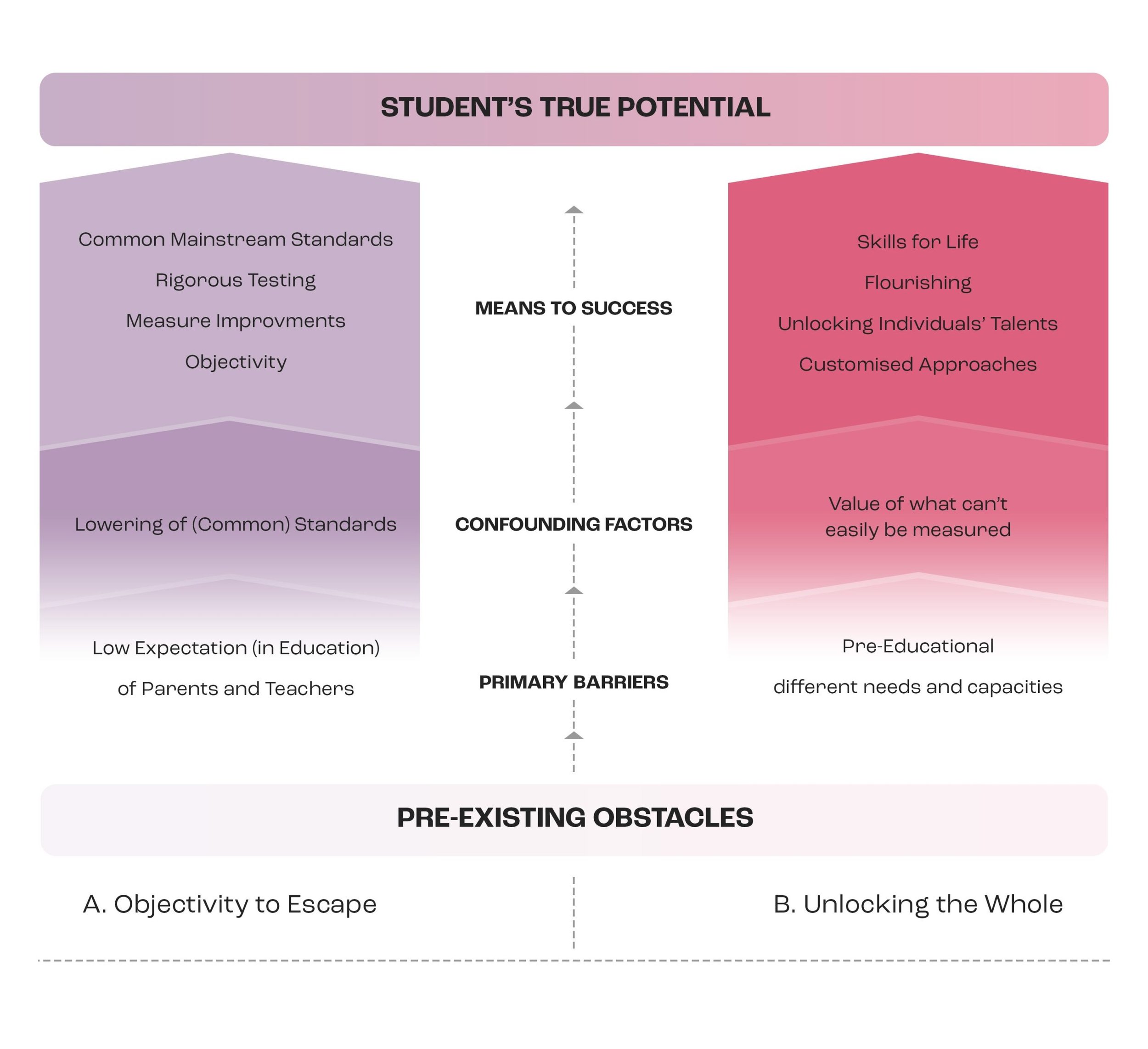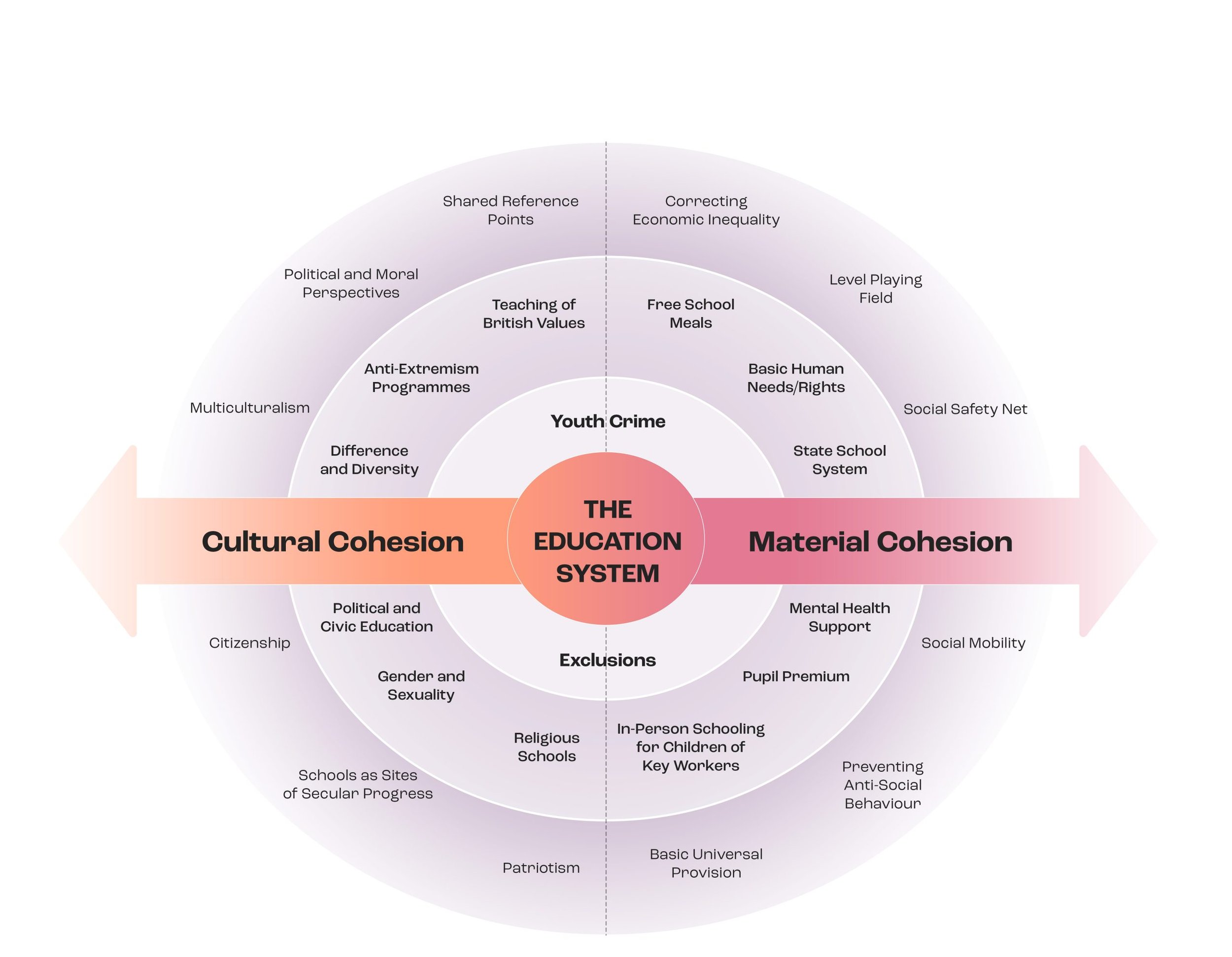I founded the Future Narratives Lab with my colleague Daniel Stanley as a non-profit initiative that works to define and analyse the underlying cultural models that shape the debates around key challenges of our time, and design alternative approaches that create better outcomes.
Daniel is a strategic communications specialist, with a background in social psychology and community organising. He writes and lectures on narrative, values & framing. He founded and led movement-building digital agency Small Axe, working with many of the world’s biggest NGOs, Social Enterprises and campaigning organisations, and is currently Creative Director at consultancy Cohere Partners.
Our key principles guide what we work on, and how we do it.
Our structure
The Lab operates as a flexible network of associates, building agile, specialist teams for the needs of each project.
Our aims
We identify and analyse existing Narratives that undermine the constructive consensus for positive social change, and design and implement new alternatives.
Allocation of Agency
Two of the most common subjects of passionate debate in education have been the appropriate level of student discipline and ideas around ‘free schools’. Another way to frame such debates is to see them — and the viewpoints at play within them — as fundamentally about agency: who should have it, who needs more, who has too much, and what we should do to correct any perceived imbalance.
Viewed this way, it allows for a useful interface between seemingly distant conversations — and the comparison and contrast within particular viewpoints of where agency is valued and emphasised — and where it is ignored.
Our origins
The Lab was incubated as a non-profit spin off by strategic communications consultancy Cohere Partners, who have a background in Narrative development.
Projects
Key Findings
Our principles
We see Narrative as a crucial means to achieving lasting positive social change. You can find more on our philosophy and principles on our Narrative page.
How to Disagree Better About Education
Education debates in the UK today are dominated by binary and divisive framings that crowd out the true variety of perspectives and philosophies in play. Future Narratives Lab worked with the PSHE Association to map out and analyse narratives around education, interviewing national and international experts, leading to an insightful report on ‘How to Disagree Better about Education’.
Divisive narratives in education capture the most attention. They emphasise difference, focussing on the most tendentious areas of controversy and distracting attention from areas where novel approaches might be found. By interviewing a range of figures with deep knowledge of the relevant UK and international context on how they see the contemporary education system, collecting their views and their perspectives on opposing ones, and then analysing and mapping the underlying logics, values and interrelations between them, we gained a richer and more accurate picture of what we actually think about education today, and where we truly differ.
A selection of stakeholders in the education system were interviewed, including a broad range of people involved in education, the care system, as well as business and economy, including Mary Bousted, General Secretary for the National Education Union (NEU), Andreas Schleicher, Director for Education and Skills, Special Advisor on Education Policy to the Secretary-General, Organisation for Economic Co-operation and Development (OECD), and Samantha Twiselton, Director of Sheffield Institute of Education, and Advisory Panellist of Sheffield Hallam University and the Department for Education (DfE).
Findings of the report centred on three main topics: the allocation of agency in education, examination and equality among students, and the contention of cultural cohesion.
Perspectives on Education
One of our early findings was that these perspectives were not straightforwardly mapped onto traditional political spectrums or ideological definitions – instead we observed four different broad overlapping groups, each that could be defined by a primary way of thinking about the purpose of education.
Examination and Equality
There is the basic idea that one of the primary purposes of education should be to allow young people to fulfil their true potential, and in particular to help them to escape the shackles that their background may have given them, whether those of bias, culture, disadvantage or class. On this basic point of purpose, there is near universal agreement.
Where divergence starts is on what the main barriers are to such escape, and thus what should be prioritised in seeking to overcome them. The chart on the left illustrates roughly how these two views might be understood.
Cohesion Contested
Our third area seeks to uncover beliefs around another area of expectation related to education’s contribution to our wider society — what role does it have to play in tying that society together?
In this area, we found two perspectives that again are often misconstrued (and presented) as being a simple political division, but once considered in more depth can be seen as concerns that animate people across a range of different political perspectives and values. Again, the artificial way in which these are divided excludes an important, even pivotal area of consensus, which if surfaced could play a crucial role as a foundation for more imaginative dialogue and debate.






